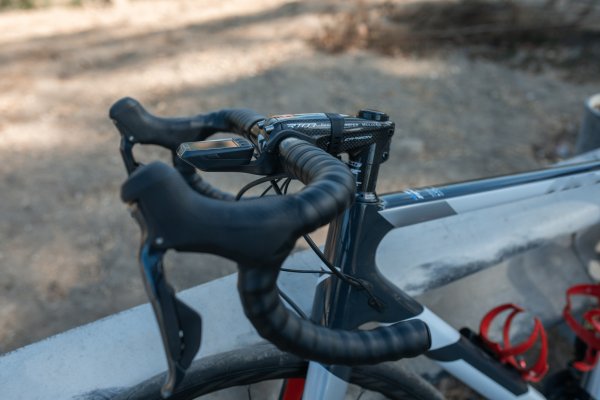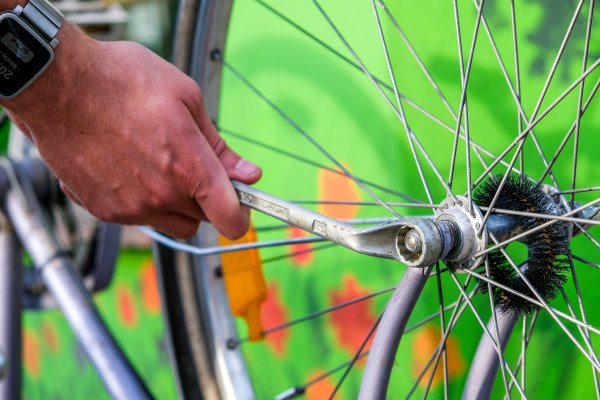If you are worried about your bike brakes, or just wondering how reliable they are, you may have questioned the chances of them failing on you…
Can bike brakes fail?
The brakes on your bicycle can fail, and it can easily lead to a dangerous situation. Typically, when your brakes are starting to fray, there are usually some indicators present before they completely fail, including sounds and usefulness.
It’s not very common for bike brakes to fail very suddenly unless your bike manages to get damaged; usually, your brakes are going to tell you they need some attention before it gets to the point where they stop working altogether.
What Causes Bike Brakes To Fail?

A few factors can lead to brake failures, such as misaligned brake pads, one brake pad working more efficiently than another, or a faulty brake cable. You might also be experiencing an issue with either one or both of the brake calipers.
Additionally, any of the many mechanisms that your bike brake cables run through may develop rust and debris buildup over time, making it so that when you pull the brakes on your handlebars, they’re harder to squeeze than normal.
How Do You Know If Your Bike Brakes Are Bad?
There are a few ways to know if your bike brakes are bad, and the most obvious sign is that they make a sound when you use them. Typically, this will be a loud squeak or the sound of metal rubbing against more metal. Your regular maintenance won’t usually result in this going away completely, either.
If you hear this, you should get your brake pads replaced, as they’ll only get worse before your brakes completely fail. Squealing or squeaking noises will often mean that the bike pads are so worn down that they are making contact with metal.
Additionally, your brakes may feel as though they take more time than usual to activate. This difference may only be a second or so, but that could make a difference should you need to brake immediately.
Why Does My Bike Squeak When I Brake?
Squeaking brakes could be a sign that some oil or oily residue has made its way onto your brake pads, your wheels, or your rotor. It’s also possible that something is out of line in your braking mechanism.
Sometimes, the greasy element simply needs to be degreased. If that doesn’t work, it’s worth taking your bike to a repair shop to see if something needs to be adjusted. Otherwise, your brakes could end up failing.
How Long Do Brakes Last On A Bike?
On average, a pair of bike brakes will last you for up to 1000 miles before they either need maintenance or need their pads replaced. As to be expected, how you handle your bike, the terrain you typically ride on, and the weather conditions you ride in can all impact how long your brakes will hold up.
A good rule of thumb is to test your brakes out every time you plan on riding your bike. A thorough inspection of all the parts of your brakes now and then, especially if you like riding on uneven or rough terrain, will help you catch signs of brake wear before they get to the point of failing.
How Often Should You Replace Bike Brake Pads?
The brake pads are an important component of the overall brake mechanism, and they usually need replacement after you’ve ridden around 20,000 miles. Your brake pads might not last as long as this depending on how often you ride your bike or the weather conditions you ride your bike in.
How Do I Fix My Bike Brakes?

If you need to replace the bike brake pads, they are fairly simple to repair without having extensive bike repair knowledge. That said, it’ll depend on what kind of breaks you have. Bikes can have either disc brakes or rim brakes.
Rim brakes tend to last longer and are easier to replace, but disc brakes tend to be more powerful.
Sometimes the brake cables will need to be replaced, or at least needs good degreasing. This will likely require the assistance of a bike repair professional.
How Much Does It Cost To Replace Brakes On A Bike?
The parts to replace your brakes aren’t expensive, so if you’re able to handle the task on your own, you’re looking at between $30 and $40 to replace them. If you hire someone to replace them for you, you may pay around $100 or more. The cost will depend on the type of bike you have.
If you’re not a handy person, paying to have brakes replaced is well worth the investment, especially if you’re an avid biker. The last thing you want is for your brakes to fail again when you need them the most.
Why Are My Brakes Not Strong?
Your bike brakes could feel less strong than they usually do because either the brake cable or the caliper arm bolts are not as tight or as tense as they need to be. When the cable is not at the right tightness, you’ll notice your brakes feel loose and sort of spongy.
Furthermore, when the bolts on the caliper are loose, the brake cable can end up slipping into it and making it harder for you to brake. If you feel like you can’t get a solid grip on your brakes when you push the pedals or your handle brakes, it could be because your brake cable is either too long or isn’t tightened enough.
How Often Should You Bleed Bike Brakes?
If you have a hydraulic bike, the brakes need to be bled out at least every 12 months. This is a very important and simple step to help you keep your brakes intact as long as possible. Hydraulic bike brakes may slack or feel spongy when you try and use them when they need to be bled out.
The process involves using hydraulic oil to replace old oil while also eliminating any kind of air pockets. When you have the brakes bled out, they are also often checked to make sure everything else is in working order before you get back on the bike.